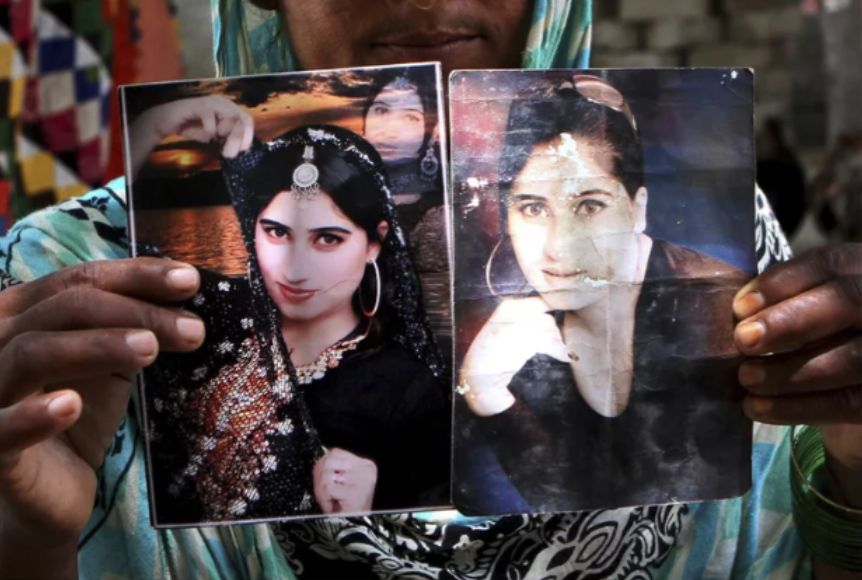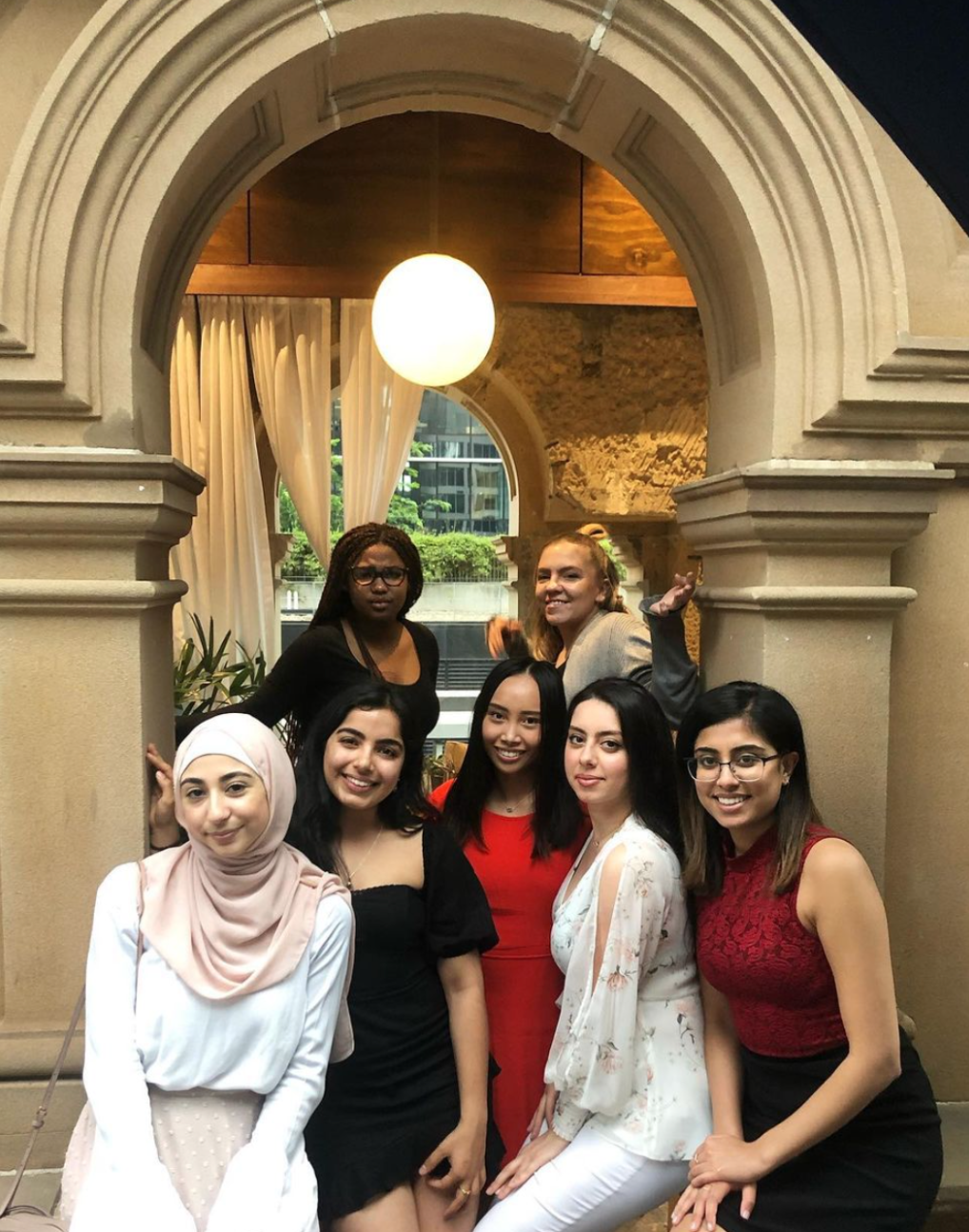The Invisible and Abhorrent: 'Honour Killings'
How honour-based violence has become an expression of immigrant alienation, giving sanction to misogyny, and the defence of provocation.
It was only a month ago when a 21-year-old Muslim woman was held down and stabbed for pursuing a man of a different faith - by her own family.
At the hands of her own brother, sister, mother, father and brother-in-law, the Adelaide woman became one of the thousands of young girls and women who are murdered every year in what are widely known as ‘honour killings’.
Four victims of "honour" based crimes in Pakistan: Qandeel Baloch, (top left); Muqadas Tofeeq (top right); Samia Shahid (bottom left); and Tasleem Solangi.
In Australia, one in five killings is between intimate partners, averaging 77 a year. According to the Victorian Law Reform Commission, about three-quarters of those killings involve men murdering women, whereby 70 per cent of those men have murdered by motivation of jealousy and control.
A third of Australian men who impose harm upon their female partners are high-functioning elsewhere in their lives and remain unscathed by the watchful eye of law enforcement.
Source: United Nations Office on Drugs and Crime - About 0.4 women per 100,000 per year (roughly 52 women a year) experienced intimate partner or family-related homicide between 2014 and 2020 in Australia.
Further studies conducted by the United Nations Office on Drugs and Crime illustrate that in 2020, Australia and New Zealand have recorded little progress in terms of reducing the annual number of female intimate partner or family-related killings over the past decade.
Despite some breakthrough studies, it has become increasingly difficult to put a figure on the number of honour killings committed in Australia each year by virtue of gaps in classification, under-reporting and inadequate record-keeping.
To better understand the trajectory of these ‘invisible’ perpetrators, the Australian Institute of Criminology found that victims were also middle-class, employed and may not have perceived themselves as victims.
Its reports like these that strongly put the onus not on individual victims or even offenders but on their communities.
Meet ‘Sonora’ (she/they), one of many Australian-Pakistani women facing the trials and tribulations of embracing her identity as a Muslim while dating someone outside of her religion. For privacy reasons, Sonora’s real name has been omitted and replaced with a pseudonym.
For the 19-year-old second-year university student, the paradox of religion and unconventional love is a touchy subject. The pair’s relationship was hidden, but problems arose after Sonora’s parents discovered her partner was not of Muslim faith.
“My family is Muslim, and I do believe in God but have no idea where I sit with religion. I think because of my upbringing, I do believe in God,” she explains.
“Who knows if I will end up Christian or fully revert back to Islam, I’m still pretty young. I can tell you, though, that Muslim men are allowed to marry Christian women, but a Muslim woman cannot marry anyone outside of their religion.”
Situations similar to Sonora’s, wherein women either refuse arranged marriages or are in interreligious relationships are often the catalyst for honour based violence. These fraught interactions and pointed questions from acquaintances and family commonly stem from the interpretation that a woman simply doing things “her way” is a rejection of her own religion.
Any lapse on a woman’s behalf allegedly taints the family’s name, and punishment must be given to the erring party to restore the family’s honour.
In many cases, perpetrators of honour based violence are motivated by strongly held moral convictions and aim to restrict the influence of Western values upon their family members or members of their community. This involves dress, sexuality and socialisation.
Deakin University’s Dr Kim Robinson says that the term ‘honour killing’ has been widely contested among feminist organisations.
Dr Kim Robinson is a social work practitioner and manager in community health and refugee services, @KimRobinsonDU on Twitter.
“The term ‘honour killing’ is really problematic, and a lot of feminist organisations don't necessarily like to use that term. It almost suggests that somehow there's something honourable about it,” she said.
In many societies, the ideal of masculinity is underpinned by this notion of ‘honour’—which is fundamentally integrated with policing female behaviour and sexuality.
Perceived notions of ‘honour’ and ‘shame’ work in tandem to control, direct and regulate a woman’s sexuality and freedom of movement by male members of a family or community.
This control is often imposed upon women who engage in non-marital relationships, seek a divorce, or transgress the boundaries of ‘appropriate’ (from a sociological stance, socially sanctioned) behaviour.
These acts of violence harm more than women’s bodies: they also cease a woman’s opposition to oppressive patriarchy.
The term ‘patriarchal homicide’ has been brought to attention as a suitable alternative, as it captures the gendered nature of the crimes in question and how such atrocities sanction misogyny. Because honour and murder are mutually exclusive as opposed to being interrelated, ‘patriarchal killings’ is a less tricky term.
Robinson explains her perception of ‘honour killings’ as veering more towards domestic and family violence, as well as the environmental circumstances in which a threat is made.
“I suppose in my space, I’d talk about [‘honour killings’] as more domestic and family violence or intimate partner violence. So, I’ve been looking at examining where was the threat made to women. If we’re talking about the commonly held view of honour killing, often that is about a father or a brother abusing a woman because she might want to have a partner from another community, a different setting, or other aspirations that aren’t actually about family. I think there's a whole different range of ways women might be exposed to different kinds of violence.”
In short, linguistics matters. The term “honour killing” cedes too much power to the perpetrator whilst turning a blind eye to survivors and women.
From a legal standpoint, the occurrences of honour based violence raises the question of whether the legal defence of provocation should be abolished.
Sydney Criminal Lawyers’ David McCulloch believes the defence of provocation—which developed in the days when murder attracted the death penalty—has long been criticised.
“It covers the instant rage men react with during drunken brawls. In the case of honour based violence, this would happen when there were challenges to their honour”, he says.
The defence of provocation poses key issues, it can:
Claim there was a ‘loss of control’ despite being an insubstantial basis for partial defence
Imply that the absence of ill intent reduces the severity of the crime
Induce victim blaming
Be vulnerable to fabrication
Be gender-biased.
This is a challenging defence for women to use, as it legitimises a spontaneous impulse men have, leading to their subsequent violence.
The provocation defence adapts to the argument that the victim led the male to committing a heinous crime in order to reduce murder charges down to manslaughter.
“Like Eve with the apple, the woman becomes responsible for his loss of control and automaton demeanour”, McCulloch says.
“Allowing self-control as a viable excuse will encourage offenders to frame their justification to fit within this excuse. I think the loss of control is a fallacy and we all possess a high level of choice concerning how we act in these situations”, McCulloch continues.
Can it be said that an ordinary person could lose control and kill their former partner after they’ve commenced another relationship? Is this intrinsically linked to the power dynamic within a relationship or the perception wherein women are the property of men? Evaluating all aspects, infidelity should never be the grounds of murder.
The defence of provocation fails to protect women wanting to leave their partners. It may show compassion for human infirmity, but it completely negates the fact that violence and abuse against women is silent.
It has been abolished in Victoria, Tasmania, Western Australia and as of 2020, was abolished in South Australia. The ACT and Northern Territory have restricted the use of provocation as a partial defence, but have not opted to abolish it entirely.
What is there to be recognised about victims of honour based violence, and what can we do?
Depending on what a woman’s visa category is, one of the biggest issues for women facing domestic family violence is that often they aren’t afforded the same level of protection as other Australian citizens.
“Perhaps they aren’t eligible for the security and safety measures other women may have, such as access to a women’s refuge or protection for their own children. Visas definitely matter, and being on temporary protection visas definitely matters because that impacts the type of support you’re eligible for and also holding perpetrators to account based on their location. Are they located overseas or within the country? What level of threat do they pose?”
Robinson considers support and services for women under threat as integral to their safety. She states:
“I think there's a whole range of other issues that come up in terms of how women find out about support and services if they are under threat. Do they know where to go? A lot of them are very fearful of being returned to a country where they feel unsafe. I think that's another aspect of it, in terms of how perpetrators are held to account. How to potentially remove their children is another concern.”
Part of the worry Robinson sometimes has is that the cases can be seen as a bit salacious - and really, it's about digging down and looking at what the risks are.
"Its resources and support that make a difference in terms of safety and the provisions of safety for women.”
You can find the original article here.










